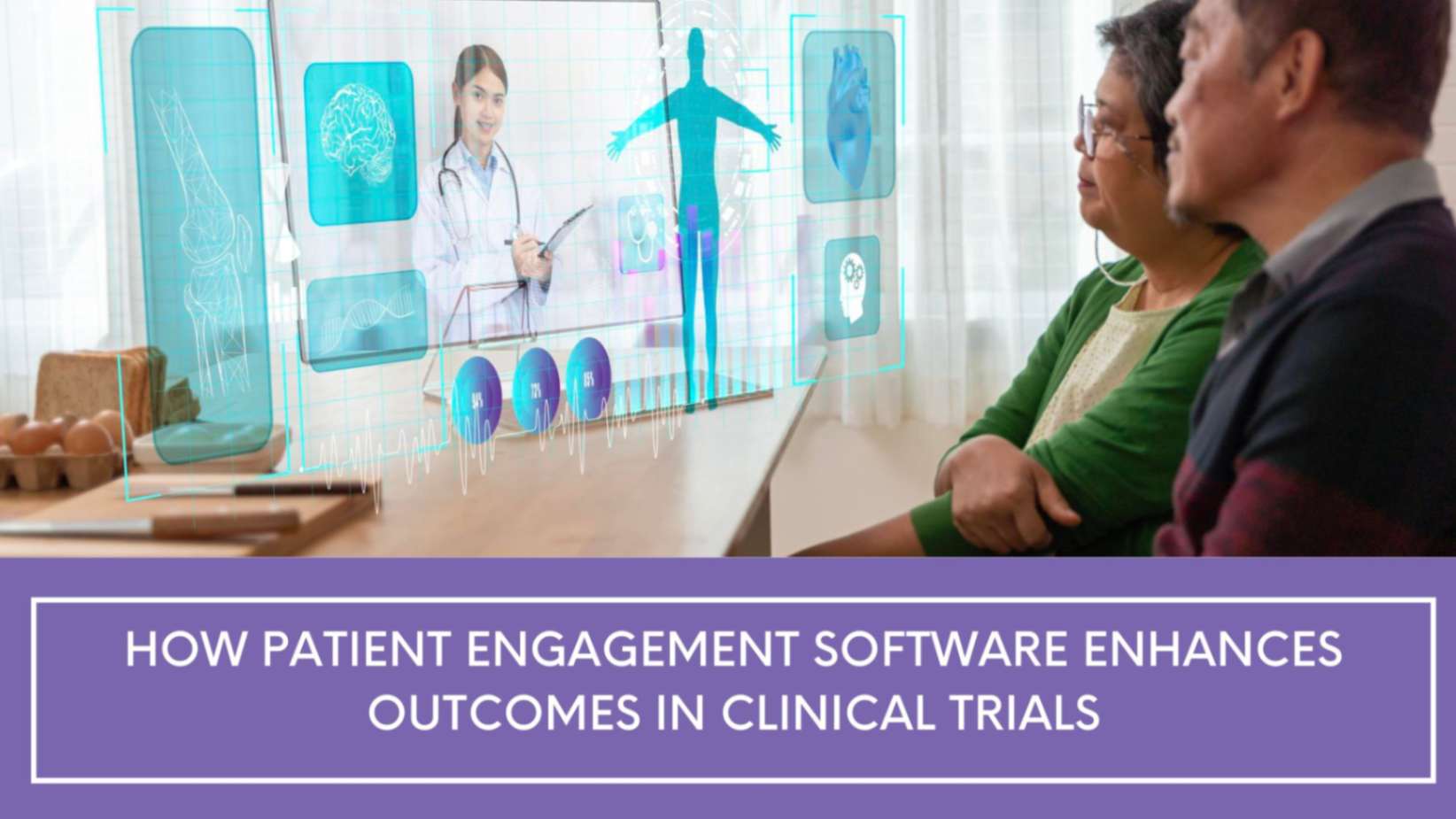How Patient Engagement Software Enhances Outcomes in Clinical Trials
Clinical trials are an essential step toward new treatments and medicines. They check the safety and effectiveness of medical innovation but still pose a major challenge to researchers, which is retention of patients, adherence of patients, and the accuracy of data. This has revolutionized the game through the proper addressing of the issues through patient engagement software. In this blog, we shall discuss How Patient Engagement Software Enhances Outcomes in Clinical Trials and enhancing outcomes to keep in step with trends.
Table of Contents
About Patient Engagement Software
The engagement software for patients aims to keep them updated, engaged, and committed during clinical trials. For this purpose, it employs mobile applications, web portals, and interactive dashboards that may enable communication processes, streamlining the entire activity, while supporting participants on their journey in a clinical trial. This technology enables the patients to give more realistic data to researchers for better decision-making.
Why Patient Engagement Matters in Clinical Trials?
Patient engagement is directly linked to the retention rate and quality of data collected in clinical trials. A dropout or failure to adhere to the protocol leads to delayed timelines and increased costs. The Forte Research report showed that nearly 30% of participants leave a clinical trial before its completion. Lack of engagement may also provide low-quality data, thereby diminishing the validity of the trial.
These problems are addressed by the patient engagement software through:
- Informed patients of their roles and responsibilities.
- Reminders for appointments and medication schedules.
- Educational resources to help patients understand the trial process.
Key Features of Patient Engagement Software
State-of-the-art patient engagement software includes a variety of features to enhance clinical trial success. The most impactful features include:
1.Real-Time Communication
This feature enables patients to connect with study coordinators or healthcare providers via chat, email, or video calls, thus resolving questions or concerns very quickly, which builds up trust and confidence.
2.Personalized Reminders
Automated reminders for appointments, medication intake, and other trial-related activities keep the patient on track.
3.Interactive Learning Modules
These educational materials, such as videos or quizzes, enable patients to understand what the trial is about and why they are participating in the same.
4.Data Collection and Analytics
Data collected from patients’ responses, wearable devices, or apps enables researchers to track the patient’s progress and adherence at a real-time level.
5.Gamification Elements
Some of the platforms incorporate gamification, for instance by rewarding patients for completing some milestones and enhancing motivation.
Trends Shaping Patient Engagement Software
As technology evolves, patient engagement software is adopting new trends to improve its functionality and impact. Here are some key trends:
1.Artificial Intelligence (AI)
Chatbots powered by AI enable instant support, answer frequent questions, and walk through complicated procedures for patients. Besides this, AI analyzes data patterns that predict adherence issues and addresses them.
2.Mobile-First Approach
Increased use of smartphones guarantees that platforms must be mobile-friendly. Mobile apps provide patients with access to trial-related information at any time.
3.Integration with Wearable Devices
Wearables like fitness trackers or smartwatches may offer real-time health information such as heart rate, activity level, or sleep patterns. This integration is done in a more accurate and continuous way.
4.Telemedicine
Telemedicine features allow patients to virtually attend consultations, thus eliminating travel and enhancing convenience.
5.Patient-Centric Design
The new systems ensure that the user interfaces are friendly and can be accessed by any patient irrespective of age or level of tech know-how.
Real-Life Success Stories
Several clinical trials have reported better outcomes after deploying patient engagement software. Some of them are as follows:
Parkinson’s Disease Study: A clinical trial with Parkinson’s patients made use of a mobile application for data collection and reminders. Patient retention improved by 25%, and higher-quality data were collected.
COVID-19 Vaccine Trials: During the pandemic, many vaccine trials used telemedicine and engagement platforms to interact with participants. These applications ensured adherence and allowed the rapid scaling of the trials.
Advantages of Patient Engagement Software
1.Higher Retention Rates
When patients are supported and informed, they are more likely to complete the trial. This is because engagement software builds trust and lowers dropout rates.
2.Quality Data Improvement
Accurate and uniform data is the key to successful trials. Real-time monitoring ensures that scientists are able to get reliable data from participants.
3.Efficient on Cost and Time
Improved processes save time and reduce administrative costs. Automated reminders and digital data collection cut human errors.
4.Improved Patient Experience
Engaged patients feel better, which reflects positively on the success and reputation of the trial.
Challenges and Solutions
While there are numerous benefits of patient engagement software, there are some challenges that come along:
- Challenge: Inadequate access to Technology. Not everyone has access to smartphones or internet services that can be relied upon
- Solution: Use alternative ways, such as text messages, telephone, etc., and cater to everyone
- Challenge: Patient’s Health Information Safety and Privacy. Patients will not like their health information safety compromised.
- Solution: Safe platform, with high-end encryption and compliance audits with policies, for example, GDPR or HIPAA.
- Challenge: New Technology Adopted by Patients. Some patients can resist new tools.
- Solution: Provide confidence through user training and support.
Future of Patient Engagement Software
Rapid growth is expected for the use of patient engagement software in clinical trials. According to MarketsandMarkets, a recent report says that the market for patient engagement solutions will reach $27.9 billion by 2027 at a CAGR of 10.2%. We are going to expect much more advanced tools such as AI-driven insights, predictive analytics, and seamless integration with electronic health records (EHRs).
Conclusion
Clinical research is transforming through patient engagement software, as it improves the communication between patients and research staff, increases data accuracy, and enhances patient satisfaction. Such tools, like real-time communication, personalized reminders, and integration with wearable devices, tackle the main problems of clinical research. Adoption of such tools will assure researchers that their trials will be conducted efficiently and successfully, which would then mean better treatments coming out to the market sooner.
Investing in the technology of patient engagement software is no longer a nice-to-have-it luxury but a necessity for future clinical trials. Whether the individual is a researcher, sponsor, or participant, embracing the use of this technology goes a long way in providing the best possible healthcare outcomes to all global citizens.
ALSO READ – How Partnering With a Platinum AdvancedMD Provider Can Reduce Your Clinic’s Operational Costs?
Talk to Medical Billing Expert Today — Get a Free Demo Now!






